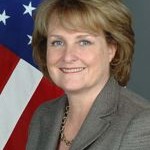British Air, Iberia’s dysfunctional merger
One of this column’s goals is to point out nuisances in the air travel system and help you avoid them or minimize their negative impact. As I welcome the many readers who have become subscribers since my book, “Decoding Air Travel,” came out, I’d like to tell you about one such nuisance.
As my regular readers are well aware by now, I always know in what booking class a future ticket will be issued. I search for availability in that booking class and choose flights with available seats. That’s why, even if I have to make a reservations with an agent on the phone, I know how much the ticket will cost before I make the call…



